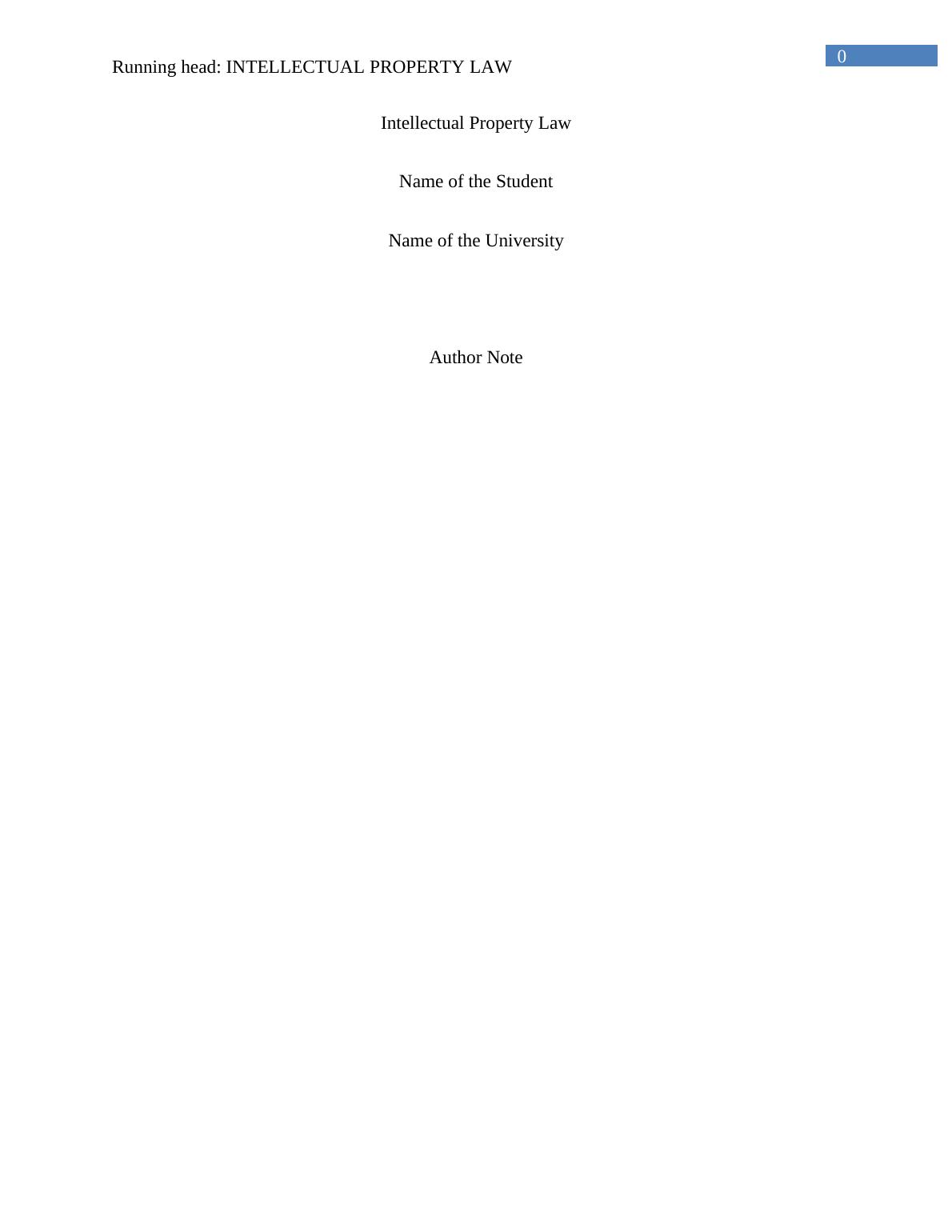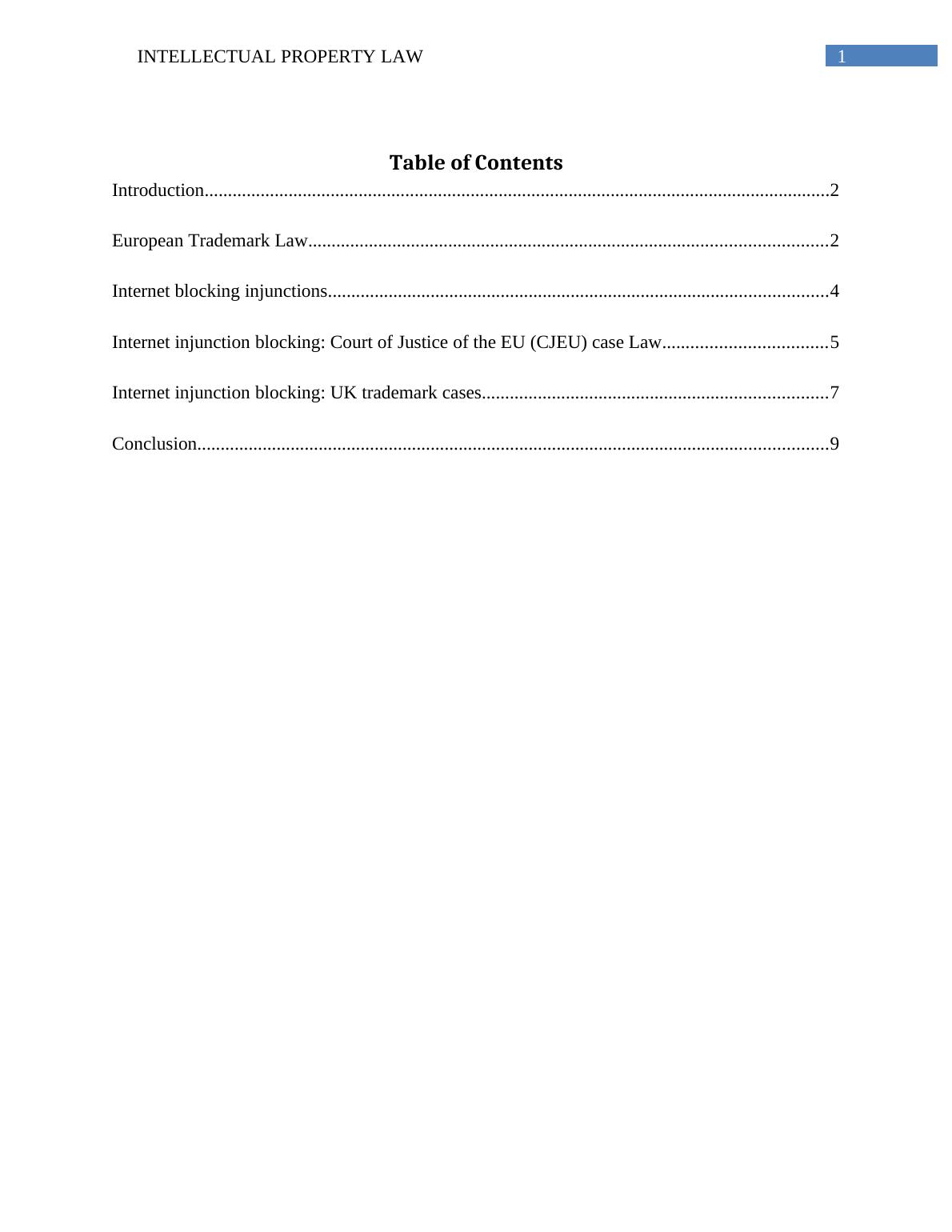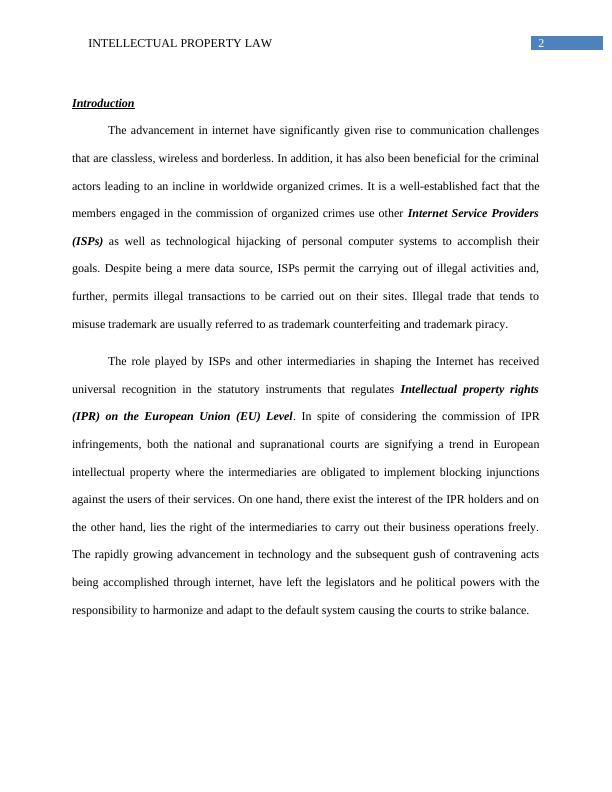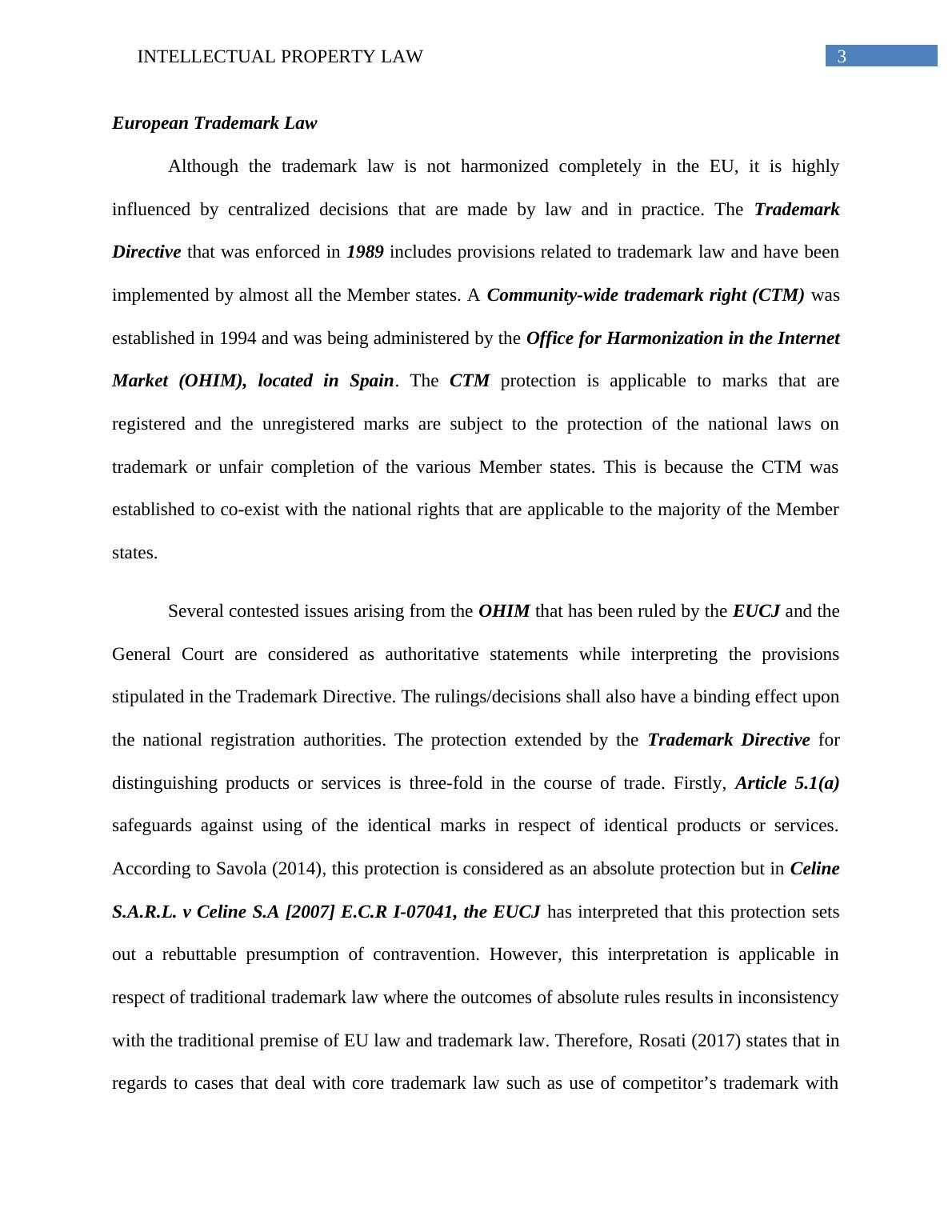Intellectual Property Law in Internet Injunction Blocking: UK Trademark Cases
14 Pages3292 Words228 Views
Added on 2020-05-28
About This Document
INTELLECTUAL PROPERTY LAW 1 Celine 0 INTELLECTUAL PROPERTY LAW Intellectual Property Law Name of the Student Name of the University Author Note Introduction 2 European Trademark Law 2 Internet blocking injunctions 4 Internet injunction blocking: Court of Justice of the EU (CJEU) case Law 5 Internet injunction blocking: UK trademark cases 7 Conclusion 9 Introduction The advancement in internet have significantly given rise to communication challenges that are classless, wireless and borderless.
Intellectual Property Law in Internet Injunction Blocking: UK Trademark Cases
Added on 2020-05-28
ShareRelated Documents
End of preview
Want to access all the pages? Upload your documents or become a member.
Liability of Internet Intermediaries for Third Party Content: Models and International Human Rights Framework
|6
|1439
|166
International Intellectual Property Law Group Report
|16
|3750
|31
Regulation of Night Work: Role of European Commission, Council of Minister, and European Parliament
|9
|3617
|75
Business Law: Sources, Impact on Business, Legal Formation and Dispute Resolution
|12
|3684
|423




